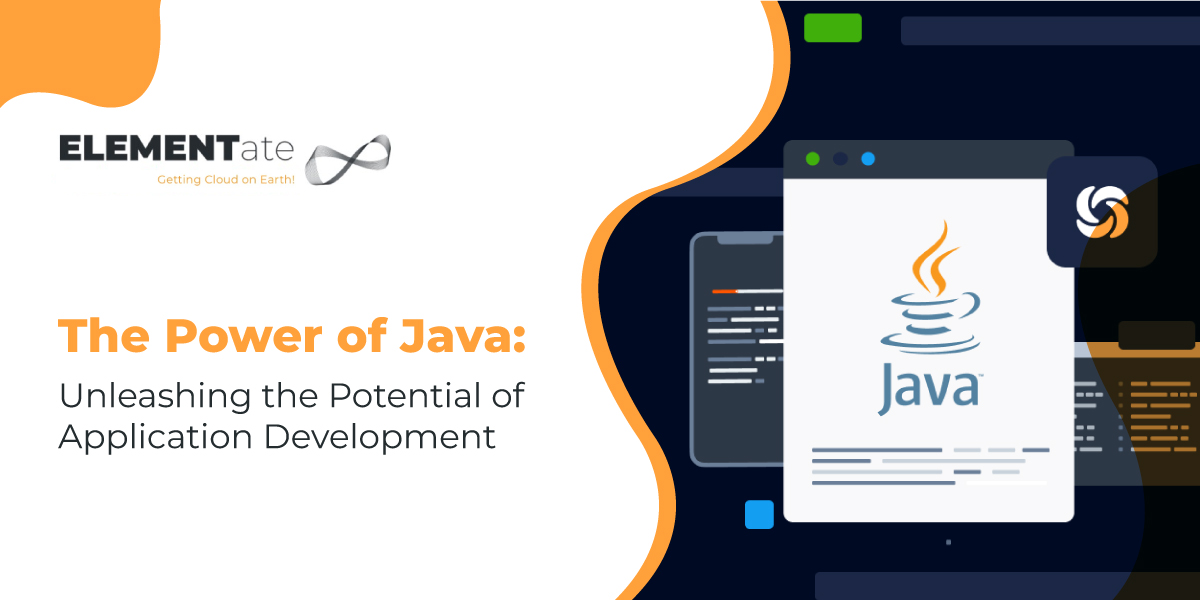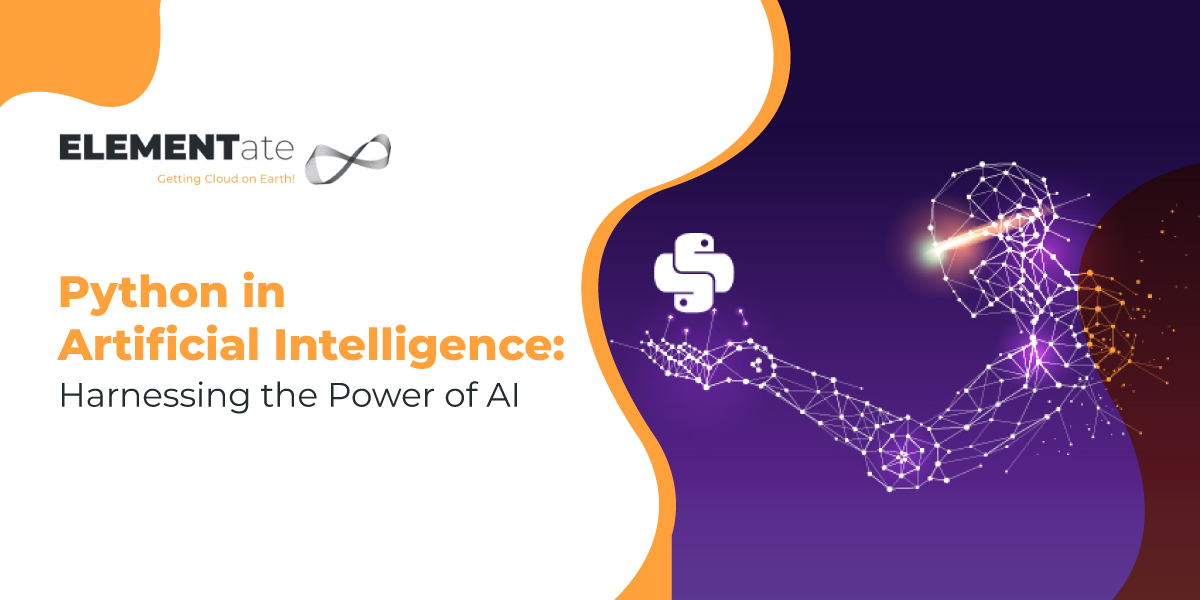Blog Detail

- 25 May, 2023
The Power of Java: Unleashing the Potential of Application Development
Java is a widely-used programming language that has revolutionized the world of software development. It is known for its platform independence, robustness, and versatility, making it a popular choice for creating various applications. In this article, we will explore the basics of Java, its features, and the importance of Java application development. Additionally, we will highlight some prominent Java development companies in India and Gujarat.
Java is an object-oriented programming language that was created by James Gosling and his team at Sun Microsystems (now owned by Oracle) in the mid-1990s. Since its inception, Java has grown to become one of the most widely used languages in the software industry. It is favored by developers for its simplicity, readability, and extensive libraries that facilitate rapid development.
One of the key advantages of Java is its platform independence. This means that Java programs can run on any platform that supports a Java Virtual Machine (JVM), such as Windows, macOS, Linux, and even mobile devices. The "write once, run anywhere" principle of Java allows developers to write code once and deploy it on multiple platforms, reducing development time and effort.
Java is renowned for its robustness and reliability. It incorporates strong error-checking mechanisms and exception handling, which helps in building stable and fault-tolerant applications. The language also promotes strong typing and strict compilation, minimizing runtime errors and ensuring code integrity.
Java offers extensive libraries and frameworks that simplify application development. These libraries provide pre-built modules for common functionalities, such as database connectivity, networking, graphical user interfaces, and more. Popular frameworks like Spring, Hibernate, and JavaFX further enhance the development process by providing additional tools and functionalities.
Nowadays, there is a growing demand for Java application development services. Many businesses and organizations rely on Java to create enterprise-grade software solutions, web applications, mobile apps, and more. As a result, numerous Java development companies have emerged to cater to this demand.
India, in particular, is a hub for Java development companies. The country boasts a highly skilled and competent workforce, making it an ideal destination for outsourcing Java development projects. Many Indian companies specialize in Java application development, offering services like custom software development, enterprise application integration, migration, and maintenance.
Within India, the state of Gujarat has also emerged as a prominent destination for Java development. It houses several reputed software companies that provide end-to-end Java development services. These companies leverage their expertise in Java programming, frameworks, and tools to deliver high-quality solutions to clients worldwide.
How to Unleash the Potential of Application Development with Java?
Java is a powerful programming language that can unleash the potential of application development in numerous ways. By harnessing the capabilities of Java effectively, developers can create robust, scalable, and feature-rich applications. Here are some key strategies to unleash the potential of application development with Java:
- Understanding the Java Ecosystem: Familiarize yourself with the vast ecosystem of Java libraries, frameworks, and tools available. Java offers a wide range of options such as Spring, Hibernate, JavaFX, and Apache libraries, which can significantly accelerate development and enhance functionality.
- Object-Oriented Design: : Java is an object-oriented language, and understanding and applying object-oriented design principles can greatly improve the quality and maintainability of your code. Utilize concepts such as encapsulation, inheritance, and polymorphism to build modular and reusable components.
- Leverage Java APIs: Java provides a rich set of APIs for various functionalities like database connectivity, networking, multithreading, and user interfaces. Mastering these APIs allows developers to tap into the full potential of Java and create robust applications efficiently.
- Build Scalable and Concurrent Applications: Java's native support for multithreading and concurrency enables developers to build scalable and responsive applications. Utilize features like the Executor framework, concurrent collections, and synchronization mechanisms to optimize performance and responsiveness.
- Use Java Frameworks: Java frameworks like Spring, Play, and JavaServer Faces (JSF) provide a structured approach to application development, offering features such as dependency injection, aspect-oriented programming, and MVC architecture. Employing these frameworks can significantly streamline development and improve code organization.
- Optimize Performance: Java offers various tools and techniques for performance optimization. Utilize profiling tools like VisualVM and Java Mission Control to identify bottlenecks and optimize critical sections of your code. Employ techniques like caching, lazy loading, and algorithmic optimizations to enhance application performance.
- Secure Your Applications: Security is paramount in application development. Java provides robust security features, such as the Java Security Manager, Secure Socket Layer (SSL), and cryptographic APIs. Ensure you follow secure coding practices, implement proper authentication and authorization mechanisms, and protect against common security vulnerabilities.
- Embrace Continuous Integration and Deployment: Adopt modern software development practices like Continuous Integration (CI) and Continuous Deployment (CD) using tools like Jenkins or GitLab. These practices help automate build, test, and deployment processes, ensuring a smooth and efficient development lifecycle.
- Stay Updated with Java Versions: Java evolves continuously, with new features and enhancements introduced in each version. Stay updated with the latest Java versions and learn about new language features and APIs. This enables you to leverage the latest advancements and improve your application development process.
- Engage in Community and Collaboration: Java has a vast and vibrant developer community. Engage in forums, discussion boards, and social media groups to learn from and collaborate with other Java developers. Sharing knowledge, exploring open-source projects, and participating in community-driven events can expand your skillset and keep you updated with the latest trends.
Exploring Java 20 Features for Application Development:
The JDK 19 which was released on September 20, 2022, came to an end on 20 March 2023 after its six-month support period. Java 20 was released on March 21, 2023, and it brought more significant updates with years of support. Let's investigate the 7 most innovative features introduced by JDK 20.
Top Innovative features that are officially marked for Java 20:
- Virtual threads.
- Vector API proposal.
- Structured concurrency.
- Scoped values.
- Foreign function and memory API.
- Record patterns.
- Matching of Pattern for Switch Expressions and Statements.
-
1. Virtual Threads:
Structured concurrency cannot exist without virtual threads. There have been several minor changes since the initial preview in JDK 19, including some API downgrades and modifications. These lightweight threads, now in their second preview stage, make it easier to develop and maintain concurrent applications. Oracle claims that this will result in a significant shift in the way that Java programs are scaled.
-
2. Vector API Proposal:
Java Development Kits 16 through 19 were incubators for the Vector API. Added as a re-incubation just before Java 20's release, this proposed API has remained unchanged since JDK 19. With this implementation, you can define vector computations that compile consistently at runtime and behave as the optimal vector instructions only on a few of the supported CPUs, and you'll also see a few other minor bug fixes and performance benefits.
-
3. Structured Concurrency:
Structured Concurrency, introduced in JDK 19 as a preview API, is able to consolidate several processes operating on separate threads into a single operation. This simplifies the process of addressing and canceling errors, which boosts dependability and observability. With its re-incubation, the main difference is that StructuredTaskScope has been changed to permit threads formed within a task scope to inherit scoped data.
-
4. Scoped Values:
Sharing immutable data between and among threads is made possible via Scoped Values. If you're working with a lot of virtual threads, they're the way to go instead of thread-local variables. The objectives of this early-stage API include accessibility, readability, robustness, and performance.
-
5. Foreign Function and Memory API:
The Foreign Function and Memory (FFM) API is a hybrid of the Foreign Linker API and the Foreign-Memory Access API, both of which were developed independently but later merged. The FFM API was originally previewed in JDK 19, after being incubated in JDK 17 and then re-incubated in JDK 18. In response to user suggestions, the FFM API has been updated for preview in JDK 20.
- ○ The MemoryAddress and MemorySegment abstractions have been merged.
- ○ The internal MemoryLayout hierarchy has been improved so that it may be used in pattern matching within switch statements and expressions.
- ○ MemorySession has been divided into SegmentScope as well as Arena so that data can be shared across organizational boundaries with less hassle.
-
6. Record Patterns:
The primary objectives of the second preview of Record Patterns are to maintain the semantics or syntax of pattern types and to expand pattern matching to express more complex, composable data searches. With the advent of JDK 19's initial preview of this language feature, the forthcoming Java 20 is poised to usher in a host of changes.
-
7. Matching of Pattern for Switch Expressions and Statements:
Pattern Matching was first released in JDK 17 as a preview, then for a second preview and released in JDK 18, then for a third preview and released in JDK 19. The fourth preview of this language feature in JDK 20 permits it to continue co-evolving with the preview feature of Record Patterns as well as incorporates fundamental modifications to grammar around switch statements.
7 reasons why Java is still great for Application Development:
Java, the popular programming language, continues to be a top choice for application development. It offers a wide range of benefits and has stood the test of time in the ever-evolving software industry. Here are seven reasons why Java is still great for application development:
- 1. Platform Independence: Java's "write once, run anywhere" principle allows applications developed in Java to run on various platforms, including Windows, macOS, Linux, and mobile devices. This platform independence minimizes development efforts and ensures wider application reach.
- 2. Reliability and Robustness: Java incorporates strong error-checking mechanisms, exception handling, and strict compilation, resulting in stable and fault-tolerant applications. These features make it ideal for building critical and enterprise-grade software solutions.
- 3. Rich Ecosystem and Libraries: Java boasts an extensive ecosystem with a vast collection of libraries, frameworks, and tools. These resources simplify application development by providing pre-built modules for common functionalities such as database connectivity, networking, and user interfaces. Prominent frameworks like Spring and Hibernate enhance developer productivity and maintainability.
- 4. Scalability and Performance: Java's support for multithreading and concurrency makes it suitable for building scalable and high-performance applications. It provides built-in mechanisms for thread management and synchronization, allowing developers to leverage parallel processing and optimize performance.
- 5. Community Support: Java has a large and active developer community, offering abundant resources, forums, and knowledge-sharing platforms. Developers can find solutions to their queries, access code snippets, and benefit from the collective expertise of the community. The support and collaboration within the Java community contribute to its longevity and continuous improvement.
- 6. Extensive Industry Adoption: Java has gained widespread adoption across industries. It is widely used in sectors such as finance, e-commerce, healthcare, and telecommunications. The demand for Java application development continues to grow, creating ample opportunities for developers and businesses specializing in Java-based solutions.
- 7. Presence of Java Development Companies: India, including the state of Gujarat, has a thriving software development industry, with numerous Java application development companies offering specialized services. These companies have a strong pool of skilled Java developers who excel in delivering custom software solutions, enterprise applications, and mobile apps. Partnering with ELEMENTate - an excellent Java development company in Gujarat provides access to expertise and cost-effective solutions.
Final Thoughts:
The power of Java in application development lies in its platform independence, robustness, rich ecosystem, scalability, and strong community support. Combined with the services offered by ELEMENTate- the most distinguished Java development company in India Java continues to be a driving force in unleashing the potential of application development in India. It remains a reliable and powerful language that empowers developers to create innovative and feature-rich applications to meet the evolving needs of businesses and industries.
Moreover, AWS's global infrastructure and robust security measures have provided businesses with the confidence to expand globally and deliver their services with high performance and reliability. With its remarkable capabilities, the AWS cloud continues to shape the IT industry and empower businesses to thrive in the digital era.






